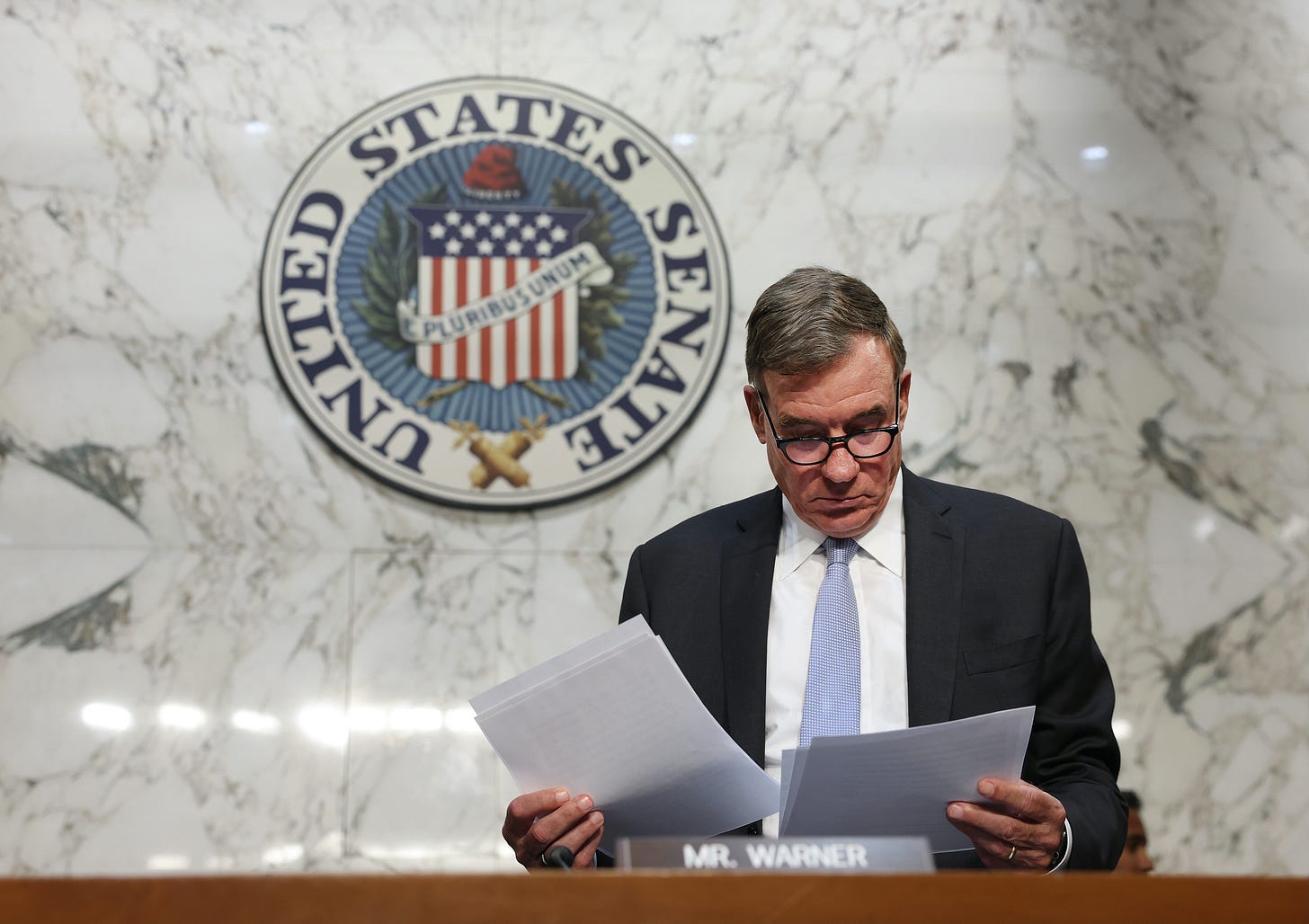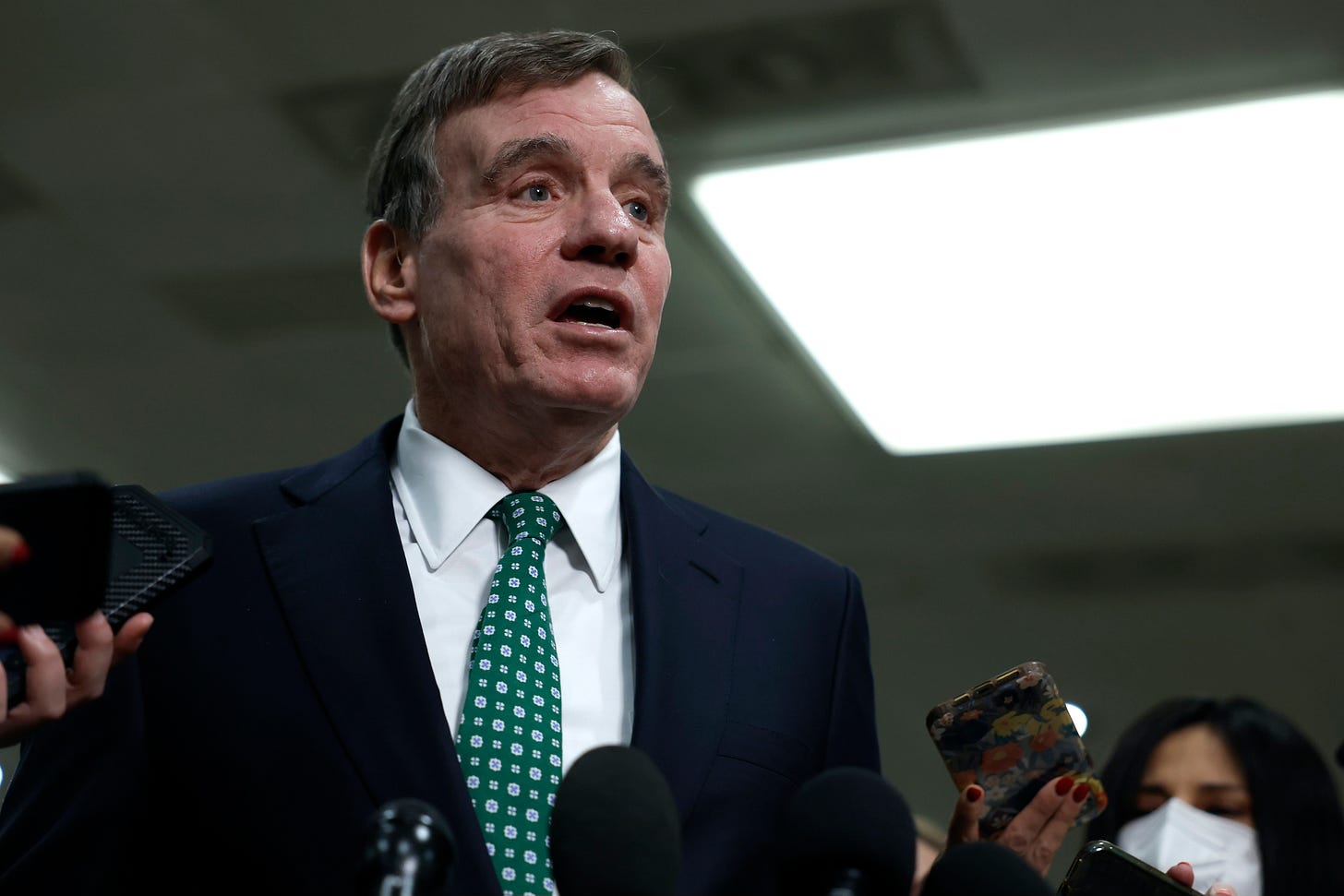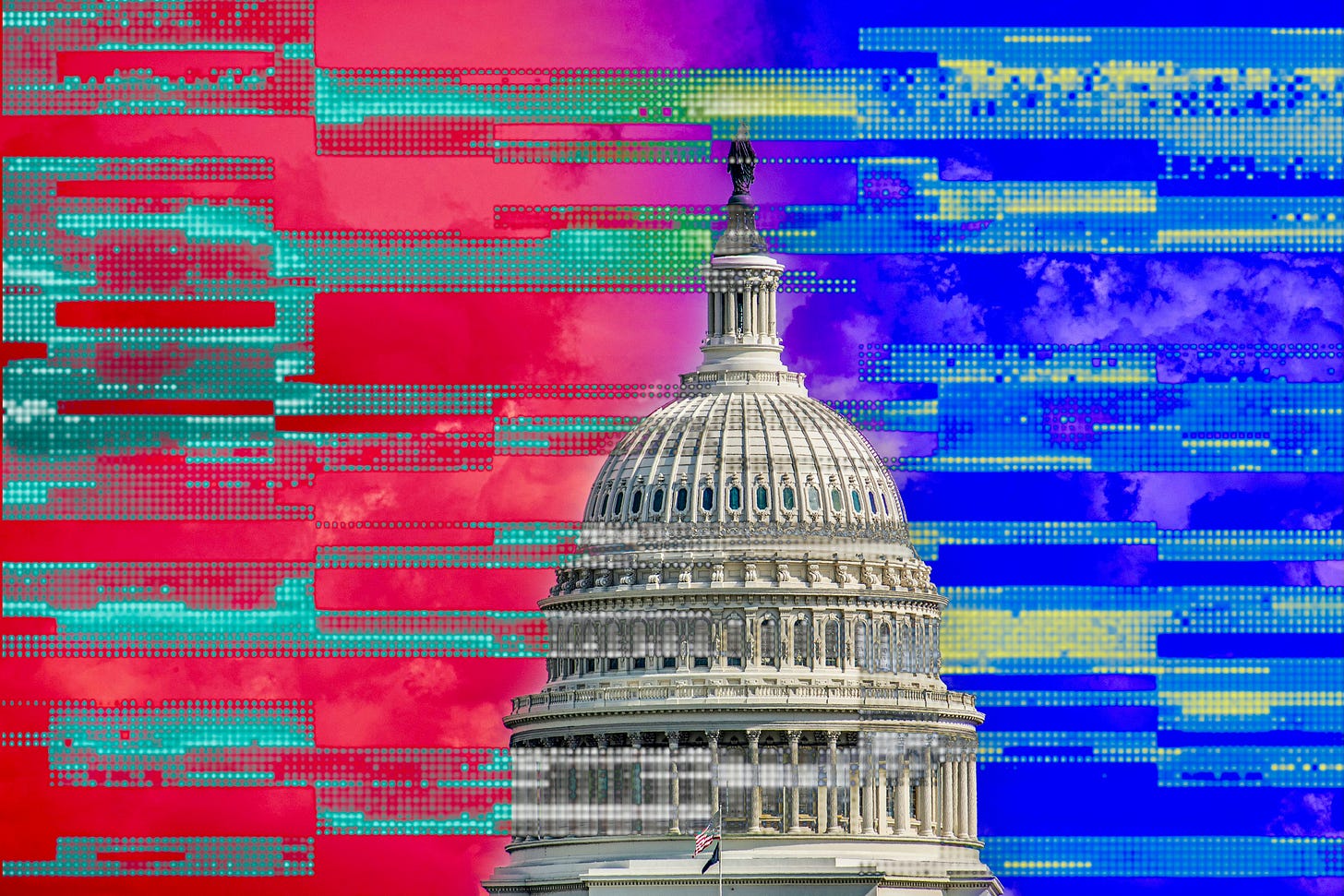New Election Hack Threats
A new letter from the Chair of the Senate Intelligence Committee warns of impending threats and an "onslaught of false information" that threatens to upend the next election.
Senator Mark Warner (D-VA), Chair of the Senate Intelligence Committee, has sent a formal request to the Biden administration for more resources to help state and local governments identify and counteract false election campaigns designed to sway voters in the November election. Although cyber experts warn of deluge of threats, the Biden administration has expressly confirmed that there are no plans to alert the public to specific threats of deepfakes or false information in the next few months.
The power to notify the public about attempted election interference by foreign actors lies with federal intelligence agencies, according to officials from the Office of the Director of National Intelligence (ODNI). Any alert would follow an extensive review by federal digital forensic experts and intelligence analysts, and the final determinant for informing the public would involve disinformation that was serious enough it “could affect the election outcome.”
In an Intelligence briefing in June of this year, in response to increased concerns among lawmakers that the United States is not prepared to respond and handle all of the increased disinformation being trafficked, the ODNI specified their own parameters and what would justify a public response. Security ODNI officials also confirmed this summer that a new office within the agency had been created to monitor information operations by foreign enemies and synthesize expert opinions in an intra-agency collective, while holding regular drills to prepare for the election.
In August and September, the ODNI, FBI, and CISA issued a joint statement regarding Iranian efforts to interfere in the election and were able to secure charges against multiple Iranian hackers for allegedly targeting members of Donald Trump's presidential campaign. That hack yielded a 271-page opposition research file on former Trump’s running mate, Senator JD Vance (R-OH), that most main stream media outlets have been hesitant to publish, but have reported on extensively. While continue to argue the ethical considerations surrounding the release of hacked information, one thing is quite clear — the United States does seem to need more reinforcements.
“Unfortunately, throughout this election cycle we have witnessed an unprecedented rise in targeted election disinformation campaigns,” Senator Warner explained in a letter to Jen Easterly, director of the Cybersecurity and Infrastructure Security Agency (CISA). “I strongly urge you to use all the tools at your disposal to provide state and local administrators with the necessary resources to uncover, build resilience against, and rapidly respond to information manipulation campaigns leading up to the election and afterwards,” wrote Warner.

In his letter, Warner empathized that state and local governments are struggling to stay ahead of the major advancement in artificial intelligence-generated information operations. He confirmed, that the federal cybersecurity teams across all levels of government operate “with limited staff and resources, making it extremely difficult for smaller teams to respond to sophisticated AI-backed campaigns targeting elections.”
In defense of his position, Senator Warner recounted recent elections that were targeted with false claims, specifically the event in Florida in 2020, when tens of thousands of voters got emails directing them to change their party affiliation and vote for a particular candidate or face physical violence.
Despite taking overt public steps to thwart Russian disinformation efforts recently — including shutting down web domains, imposing sanctions and indicting two Russians who allegedly funneled money to American influencers while concealing Moscow’s role — Warner has urged the need for more assistance and more action.
This latest ask does not seem like too much considering the work that is already being done to protect American cyberstructure. A coalition of nonprofits and good-government groups has already organized a bipartisan, national network of former officials, technology specialists and others to help local election authorities detect deepfakes or other false claims, and to respond with accurate information.
While we have no public knowledge of how much these private groups are doing to assist the federal government directly, but we can assume some overlap in the monitoring process. One would even hope that this new sub-agency, that was created to assist with election threats, might even be comprised of many of these expert outside groups who will work in tangent with the federal government to discern and neutralize new threats.

Considering the recent statement that the ODNI will not likely be disclosing any hacking attempts unless they are major and might affect the outcome of the election, the need to bolster our cybersecurity operations leading up to this election has never been stronger. While much of the action surrounding these types of cyber protections rightly remains highly classified and is not disclosed to the public, an alarm being rung by the head of the Senate Intelligence Committee, in an attempt to bolster resources within security agencies, is one that can hardly be overlooked.
For more background on this issue, read:
Amee Vanderpool writes the SHERO Newsletter and hosts the live SHERO podcast on Callin. She is an attorney, published author, contributor to newspapers and magazines, and analyst for BBC radio. She can be reached at avanderpool@gmail.com or follow her on Twitter @girlsreallyrule.
Paid subscriptions and one-time tributes embedded in each article allow me to keep publishing critical and informative work that is sometimes made available to the public — thank you. If you like this piece and want to support independent journalism further, you can forward this article to others, get a paid subscription or gift subscription, or donate once, as much as you like today.



Unfortunately we live in the Upside-Down now where the Trumplican party is quite content with election hacking and interference if it benefits them, and if it doesn't benefit them they have no problem casting blame on the other party even if it was the Iranians, not the DNC. Trump has benefited the most from election tampering and interference, bigly, since 2015.
Funny how the media grows "ethics" when it comes to sensitive Republicon material but are more than happy to publish it when it is Democratic party material, in the name of public transparency of course. LOL. The mainstream media doing all they can to get Fat Don elected.